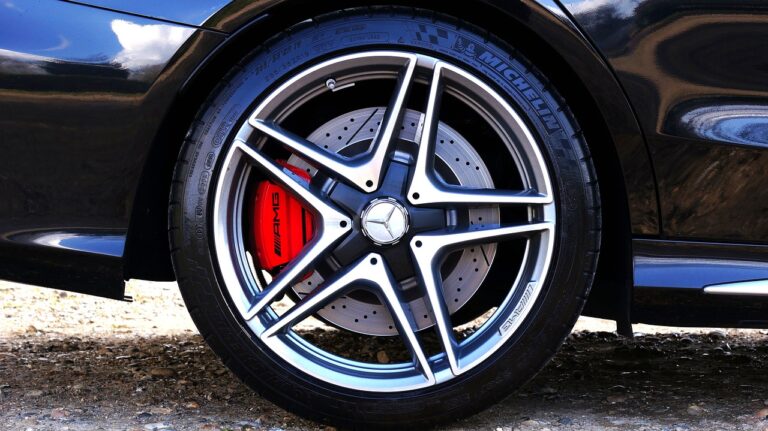Addressing Concerns About Refrigerant Leakage in Automotive Air Conditioning Systems
allpaanel com mahadev book, playexchange99, gold365 login:Addressing Concerns About Refrigerant Leakage in Automotive Air Conditioning Systems
As the summer months approach, many drivers rely on their car’s air conditioning system to keep them cool and comfortable while on the road. However, one common issue that can arise with automotive air conditioning systems is refrigerant leakage. Refrigerant leakage can not only lead to decreased cooling efficiency but can also harm the environment if left unchecked. In this article, we will discuss the causes of refrigerant leakage, how to detect it, and what steps can be taken to address this concern effectively.
Causes of Refrigerant Leakage
Refrigerant leakage can occur in automotive air conditioning systems for a variety of reasons. Some common causes include:
1. Wear and Tear: Over time, the components of the air conditioning system can wear down, leading to cracks or leaks in the system.
2. Poor Maintenance: Neglecting regular maintenance, such as changing the air filters or checking the refrigerant levels, can lead to refrigerant leakage.
3. Accidental Damage: Accidents, such as hitting a pothole or debris on the road, can cause damage to the air conditioning system, resulting in refrigerant leakage.
4. Manufacturing Defects: In some cases, the air conditioning system may have been installed incorrectly or has a defect from the manufacturer, leading to refrigerant leakage.
How to Detect Refrigerant Leakage
Detecting refrigerant leakage in an automotive air conditioning system can be challenging, as the refrigerant is a colorless and odorless gas. However, some common signs to look out for include:
1. Reduced Cooling Efficiency: If you notice that your car’s air conditioning system is not cooling as effectively as it used to, it may be a sign of refrigerant leakage.
2. Hissing Sound: A hissing sound coming from the air conditioning system could indicate a leak in the refrigerant lines.
3. Ice Build-up: If you see ice forming on the air conditioning system’s components, it may be a sign of low refrigerant levels due to leakage.
4. Strange Odors: A musty or sweet smell inside the car could be a sign of refrigerant leakage.
Addressing Refrigerant Leakage
If you suspect that your automotive air conditioning system is experiencing refrigerant leakage, it is essential to address the issue promptly to prevent further damage. Here are some steps you can take to address refrigerant leakage:
1. Inspect the System: Thoroughly inspect the air conditioning system for any visible signs of damage or leaks, such as oil stains or wet spots.
2. Perform a Leak Test: A professional technician can perform a leak test to identify the source of the refrigerant leakage accurately.
3. Repair or Replace Components: Depending on the severity of the leakage, the technician may need to repair or replace damaged components of the air conditioning system.
4. Recharge Refrigerant: Once the leak has been repaired, the technician will recharge the refrigerant to the recommended levels.
5. Regular Maintenance: To prevent future refrigerant leakage, it is essential to schedule regular maintenance for your car’s air conditioning system.
6. Environmental Impact: In case of refrigerant leakage, make sure to dispose of the old refrigerant properly to minimize its impact on the environment.
FAQs
Q: How often should I have my car’s air conditioning system checked for refrigerant leakage?
A: It is recommended to have your car’s air conditioning system checked for refrigerant leakage at least once a year or as recommended by the manufacturer.
Q: Can I repair refrigerant leakage myself?
A: It is not recommended to repair refrigerant leakage yourself, as it requires specialized tools and knowledge. It is best to leave this task to a professional technician.
Q: How much does it cost to repair refrigerant leakage in an automotive air conditioning system?
A: The cost of repairing refrigerant leakage can vary depending on the severity of the leak and the components that need to be repaired or replaced. It is best to consult with a professional technician for an accurate estimate.
Q: Is it safe to drive with refrigerant leakage in the air conditioning system?
A: It is not recommended to drive with refrigerant leakage in the air conditioning system, as it can lead to decreased cooling efficiency and potential damage to the components of the system.
In conclusion, addressing concerns about refrigerant leakage in automotive air conditioning systems is essential to ensure the comfort and safety of drivers and passengers. By understanding the causes, detecting signs of leakage, and taking appropriate steps to address the issue, drivers can enjoy a well-functioning air conditioning system during the hot summer months. Remember to schedule regular maintenance for your car’s air conditioning system to prevent future refrigerant leakage and maintain optimal performance.







